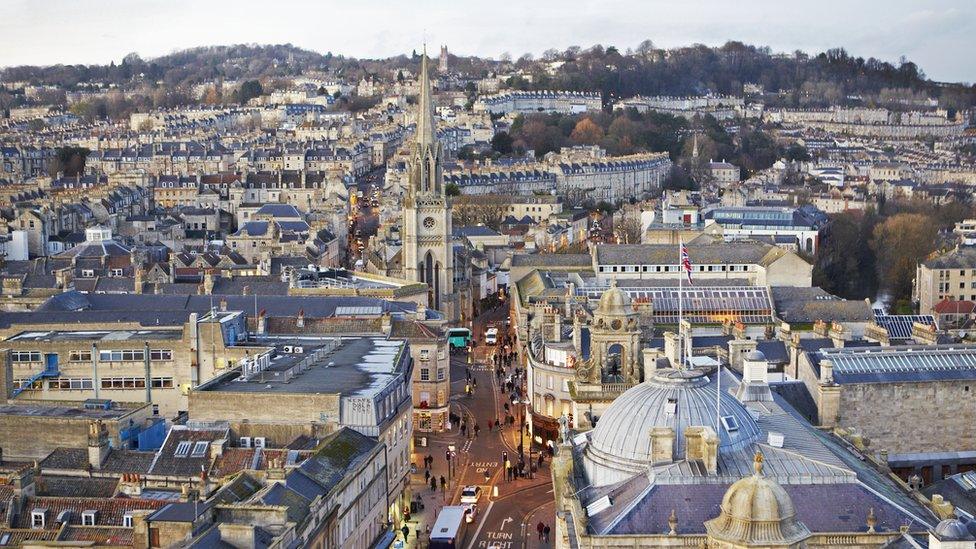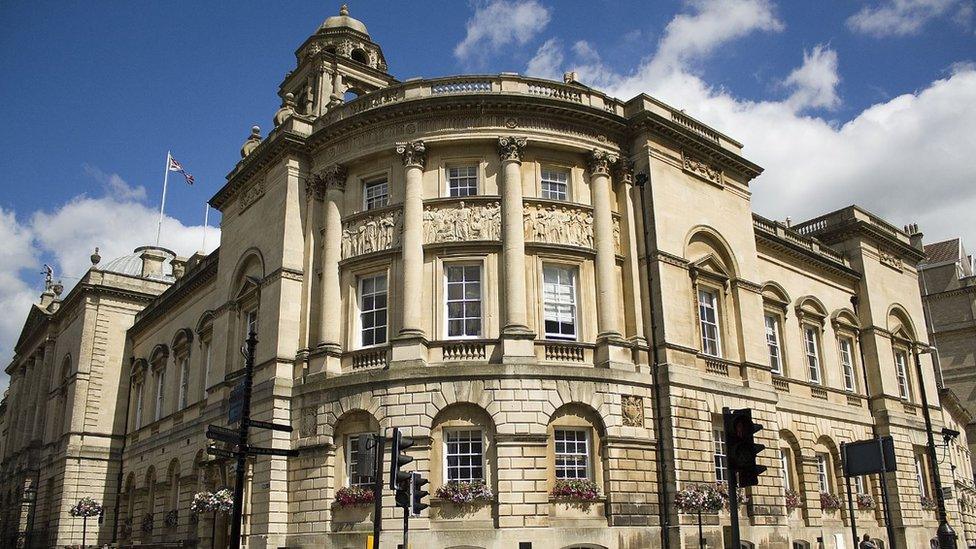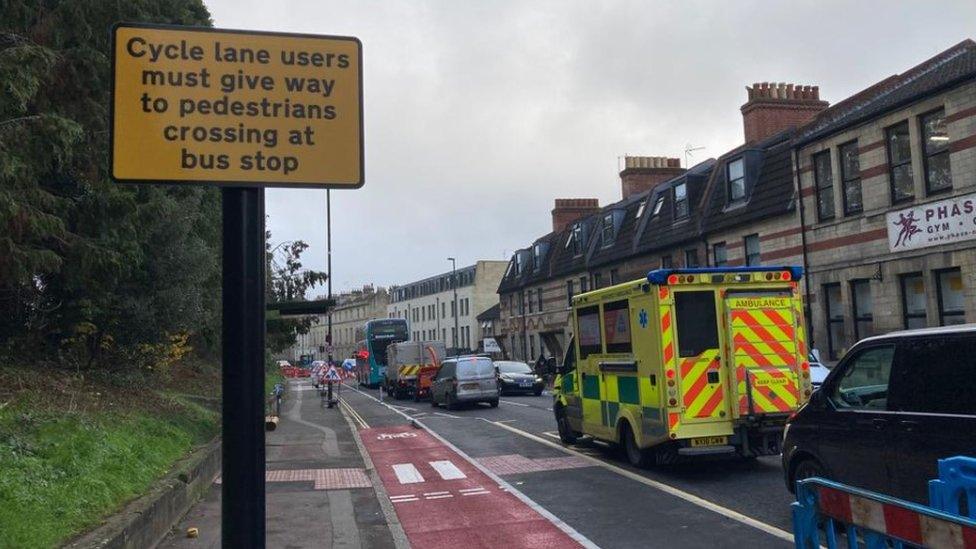Average age of population in Bath and North East Somerset declines
- Published

The student community in Bath has helped to bring down the average age of the local population
Bath and North East Somerset (BANES) is one of only a few local authorities in England where the average age of the population is decreasing.
Experts believe the twin pressures of the pandemic and the housing shortage could be forcing people into living in more rural areas.
Student populations have also boosted numbers.
The demographic shift might spell trouble for long-standing Conservative MPs in the area, pollsters suggest.
With many councils concerned about how they will meet the needs of an ageing population, BANES saw a 1.3% increase in the proportion of people aged between 18 and 30 in the census taken in March 2021.
It was the second highest rise after West Lancashire, where that group increased by 1.8%, the Local Democracy Reporting Service found.
Although the numbers sound small, they can equate to thousands more young people living in these areas.

Many young people returned to their parents' homes during the pandemic
Dr Patrick English, associate director of political and social research at YouGov, has dubbed these "Benjamin Button local authorities" after the F Scott Fitzgerald story about a man born old who grows younger over time.
"Covid pushed a lot of people out of small flats in the cities and back to their parents or into more suburb-y places with gardens," Dr English said.
"I think the pricing thing is very, very real as well, and the housing shortage."
Dr English said often people hoping to live in an urban hub such as Bristol were forced to find accommodation in Bath or Weston-super-Mare and had to commute in.
"Universities definitely have a big impact, as do large further education colleges, in terms of attracting and keeping young people in the area," he said.
All of this could have in impact on Conservative constituencies in the event of a general election.
Dr English said: "Let's say you are (Conservative MP for North East Somerset) Jacob Rees-Mogg, and let's say you do have one or two percent extra young voters in your constituency now than you did 10 years ago.
"That could mean three or four thousand extra votes which are heavily stacked against you because, to be honest, young people are more likely to be liberal, pro-immigration, have been impacted most by the cost of living crisis and the economic recession."
He said younger voters, particularly those who had graduated into the financial crisis of 2008 to 2012 "do not have many reasons to vote Conservative right now".

Follow BBC West on Facebook, external, Twitter, external and Instagram, external. Send your story ideas to: bristol@bbc.co.uk
Related topics
- Published9 December 2022

- Published9 December 2022

- Published8 November 2022
